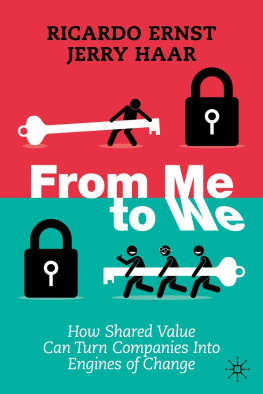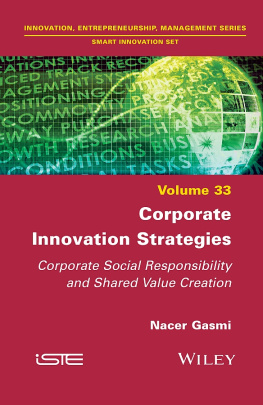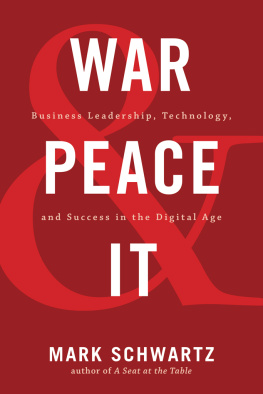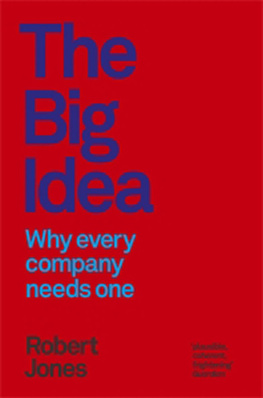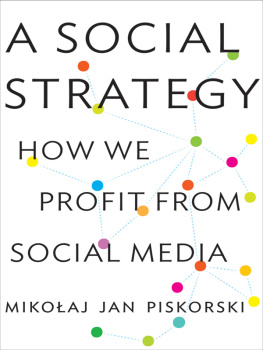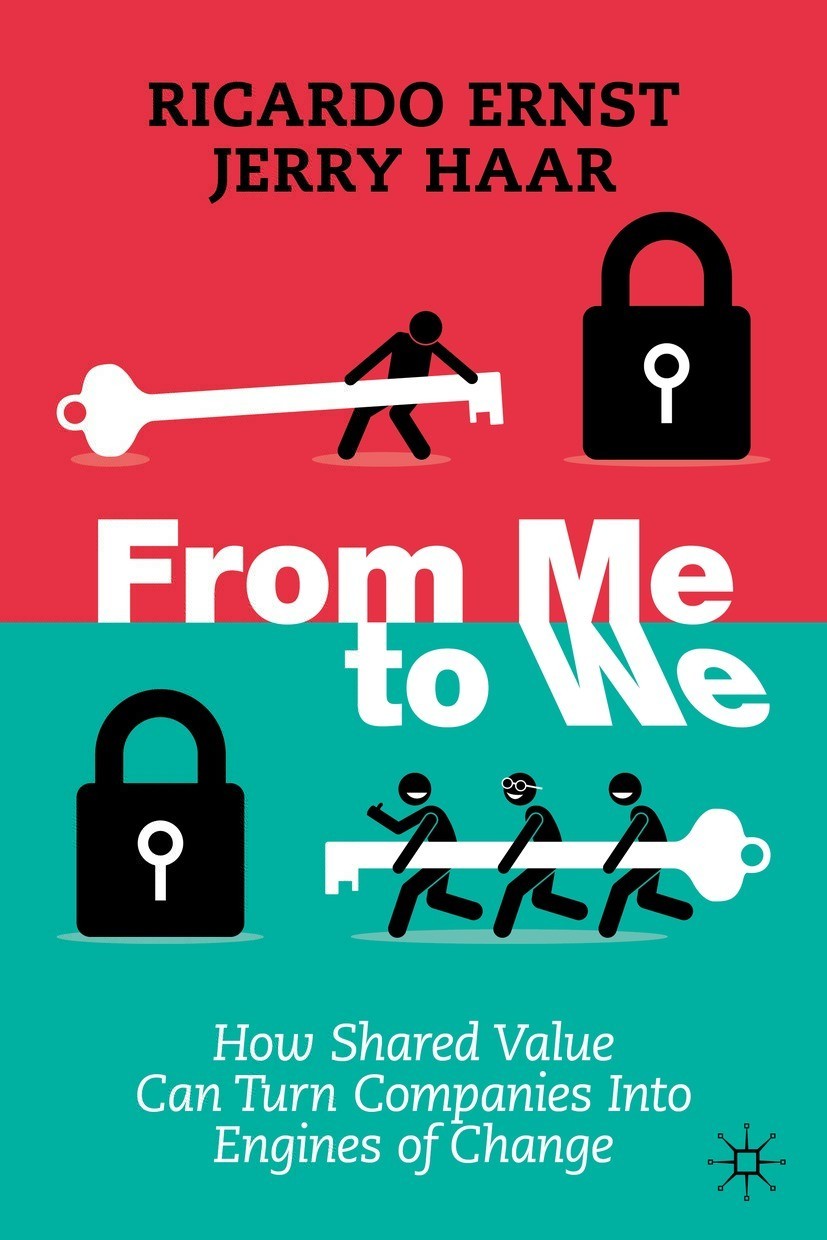Ricardo Ernst and Jerry Haar
From Me to We
How Shared Value Can Turn Companies Into Engines of Change

Logo of the publisher
Ricardo Ernst
McDonough Sch of Business, Georgetown University, Washington, DC, USA
Jerry Haar
Florida International University, Miami, FL, USA
ISBN 978-3-030-87423-0 e-ISBN 978-3-030-87424-7
https://doi.org/10.1007/978-3-030-87424-7
The Editor(s) (if applicable) and The Author(s), under exclusive licence to Springer Nature Switzerland AG 2022
This work is subject to copyright. All rights are solely and exclusively licensed by the Publisher, whether the whole or part of the material is concerned, specifically the rights of translation, reprinting, reuse of illustrations, recitation, broadcasting, reproduction on microfilms or in any other physical way, and transmission or information storage and retrieval, electronic adaptation, computer software, or by similar or dissimilar methodology now known or hereafter developed.
The use of general descriptive names, registered names, trademarks, service marks, etc. in this publication does not imply, even in the absence of a specific statement, that such names are exempt from the relevant protective laws and regulations and therefore free for general use.
The publisher, the authors and the editors are safe to assume that the advice and information in this book are believed to be true and accurate at the date of publication. Neither the publisher nor the authors or the editors give a warranty, expressed or implied, with respect to the material contained herein or for any errors or omissions that may have been made. The publisher remains neutral with regard to jurisdictional claims in published maps and institutional affiliations.
This Palgrave Macmillan imprint is published by the registered company Springer Nature Switzerland AG
The registered company address is: Gewerbestrasse 11, 6330 Cham, Switzerland
From Me to We
A compelling, timely and masterfully written volume with a global reacha must-read for firms large and small. Ernst and Haar have penned a thought-provoking, practical opus that takes shared value to the next level.
Alvaro Fernandez Garza, CEO, Alfa SAB de CV
The concept of M2W involves rethinking the business corporation. Ernst and Haar offer an illuminating analysis of how to build the foundation of socially-conscious enterprises following the principles of stakeholder involvement, fairness, and sustainability. It will open your eyes to a new conception of what the firm can do for society.
Mauro F. Guilln, Dean, Cambridge Judge Business School
An inspiring read about the role of businesses, governments, academe, and NGOs in the creation of an ecosystem where everyone is accountable and everyone wins. Ernst and Haar enhance the concept of shared value to a Me to We approach for real, private sector-led social change.
Catalina Garcia, Global Director of Corporate Affairs, AB InBev
This book is dedicated to our families whose love, understanding, supportand patience above allmake all our collaborative undertakings possible.
Foreword
As the Executive Chairman of Arcos Dorados (ARCO NYSE) with operations in twenty countries and territories in Latin America, I am acutely aware of the social and environmental challenges that we face, not just in the Americas but worldwide. The intersection of government and the private sector is getting more challenging and more complex, and the solution of these daunting issues is leading companies to take a more proactive leadership role. I have known the authors for quite some time through their active involvement in the Latin American Program of the Woodrow Wilson International Center for Scholars, and I have often shared and discussed with them how in our firm we engage our 90,000 employees and why it is so important that we take care of all our stakeholdersconsumers, employees, suppliers, and shareholders .
Shared value creation (SVC) is only a decade old, and the challenge from Dr. Ernst and Dr. Haar is to up the ante by going from merely shared values to owned benefits and accountability a challenging task. How can we achieve that goal? We go to a Me To We approach to issues that better include those at the bottom of the pyramid.
While I find the proposition to be difficult and intellectually challenging, it is nevertheless very compelling. For any venture or system to work well it must be in equilibrium, and that state is by definition not a stable stateit is constantly adjusting and evolving in minute twists and turns in order to remain balanced. Shareholder priorities give way to employees needs, that give way to farmers, who give way to environmentalists, who give way to societal health, and back to the customer who started it all.
In the context of business, whether a multinational like Arcos Dorados or small- and medium-sized enterprises across a variety of industries, it is not only about me, the shareholder . It is about us, the collective we! And the process needs to be done in a balanced and democratic way, but recognizably not every stakeholder has the same number of votes. The customer , I would argue, is the most important constituent of them all. The trick is to cobble it all together and, importantly, get the commitment of all stakeholders, the collective we.
This timely and thought-provoking book explores this circular chain and makes a very important contribution to the business literature, as it places ownership and accountability at the core of the new challenge for firms. What we are witnessing is the adoption of a shared value approach that is accelerating among firms worldwide, and this engaging volume begs more questions than it answers.
Woods Staton
Montevideo, Uruguay
Preface
What is the role of the corporation in society? That is a query that is easy to answer, and there have been tomes on the topic, both scholarly and non-scholarly. On the other hand, posing the question What should be the role of the corporation in society? there are a great many books and articles as well; however, the answers to that question are numerous and varied.
Debate over the role of the corporation in todays world expanded and intensified following the global financial crisis of 20072008. This crisis sparked what is known as the Great Recession , a global recession , which, until the coronavirus pandemic, was the most severe recession since the Great Depression . According to the US Financial Crisis Inquiry Commission , the causes of the crisis were primarily due to widespread failures in financial regulation , including the Federal Reserves failure to stem the tide of toxic mortgages; severe breakdowns in corporate governance including too many financial firms acting recklessly and taking on too much risk; and a toxic mix of excessive borrowing and risk by households and Wall Street that put the financial system on a collision course with crisis.
As with the corruption scandals that bankrupted Enron, Arthur Anderson, and Adelphia Communications previously, the federal government stepped in. The Sarbanes-Oxley Act of 2002 set new or expanded requirements for all US public company boards, management, and public accounting firms. A number of provisions of the Act also apply to privately held companies, such as the willful destruction of evidence to impede a federal investigation. In the case of the Great Recessions bank lending calamity, Congress responded with the Dodd-Frank Wall Street Reform and Consumer Protection Act, targeting the sectors of the financial system that were believed to have caused the 2008 financial crisis, including banks, mortgage lenders, and credit rating agencies.

